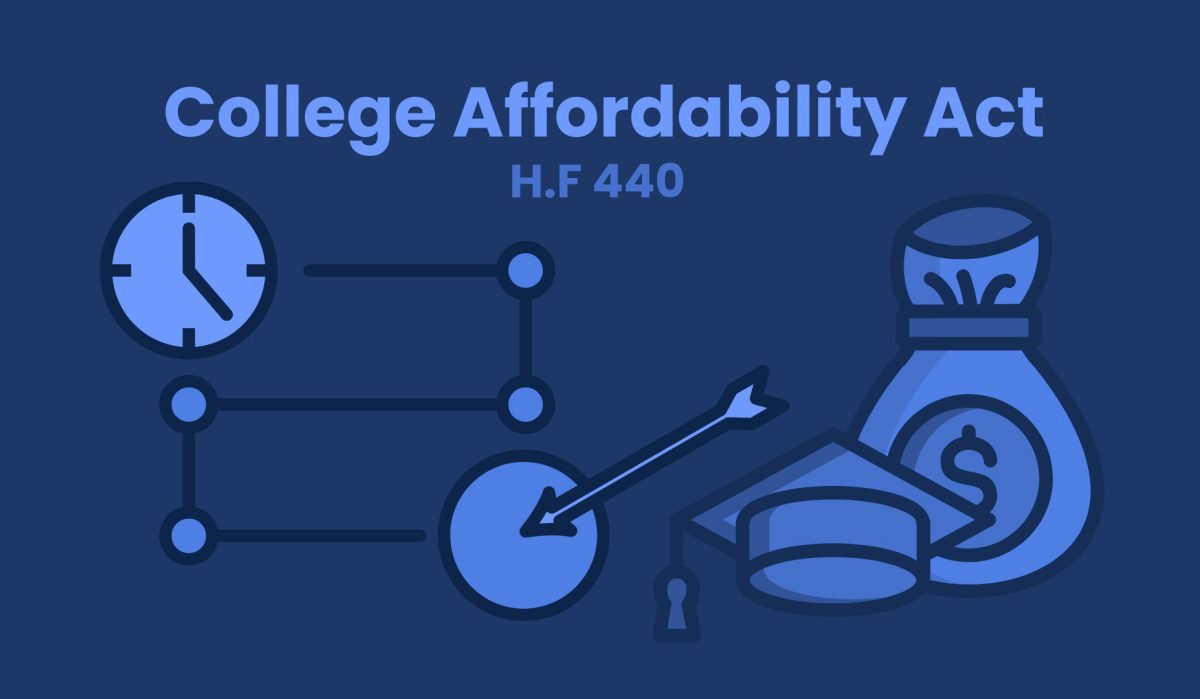The Iowa House passed a bill called the “College Affordability Act” that would change tuition deadlines and explore new degree programs. The Iowa Senate subcommittee it was assigned to recommended its passage, and the Senate Education Committee has yet to schedule a meeting to address the bill. If passed by the committee, the bill would hit the Senate floor.
On March 18, the bill, HF 440, passed 64-33. Rep. Named the “College Affordability Act,” the bill has many different functions. The Iowa Board of Regents governs Iowa’s three public universities: the University of Iowa, Iowa State University and the University of Northern Iowa. If this bill passes the Senate, it’s likely the legislature would attempt to expand it to all Iowa colleges in the next session.
“The Board of Regents supports the bill, and we will continue to track the language as it makes its way through the legislative process,” Josh Lehman, the Iowa Board of Regents’ senior communication director, said in an email. “We will continue to work with the legislature on all issues that relate to higher education.”
It would require universities to add a work-study program where students can work part-time while they study, with the employer of the student being responsible for the payment of the student’s tuition. The bill also limits those universities from increasing annual tuition and sets a limit for increases at 3%.
The bill passed the House along party lines, with not a single Democrat representative voting yes, and not a single Republican representative voting no.
The bill also would require any decision on tuition raises to be made by April 30 of the previous year and require the universities to establish a three-year bachelor’s degree program.
When the House met to vote on the bill, Rep. Adam Zabner, D-Iowa City, shared the story of a constituent, Avery Dettbarn, who didn’t have enough money to keep studying at the University of Iowa because she wasn’t able to get a private loan. Dettbarn was only able to stay thanks to a loan from a family member. Zabner used Dettbarn’s story to argue against the bill.
“Our universities should serve the students of Iowa and ensure that they have opportunities to meet their needs,” Zabner said. “Over the last 25 years, funding for our Regents Universities has remained nearly flat and tuition has gone up substantially, making it harder for students to achieve their dreams.”
Collins argued that the Democratic Party’s thinking on college authority is flawed.
“The only solution my democratic colleagues have offered is to throw more and more and more money at the system, and they’re wrong,” Collins said before the House voted on the bill. “The average state funding per resident is over $12,000. Trying to address the cost of higher education is about like trying to rearrange the deck chairs on the Titanic. Even when you give a university more money, their budgets continue to climb. This bill is a major victory in controlling costs, providing certainty for our students and getting our students into the workforce even faster, all while saving them more of their hard-earned money.”
With the Iowa Senate’s Republican supermajority of 34 seats, it is very likely that this bill would pass the Senate if it gets taken to the Senate floor, just as it passed along party lines in the House.








